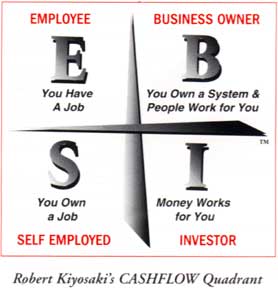Minnesota Landlords Evers too much loan leverage?
Whether you are a brand new Minnesota landlord or have been a landlord for years with a handful of rentals I’m here to tell you how to look for situations that sound like yours where you may be too leveraged with loans and money and maybe even time as a Minnesota landlord.
Let’s say you don’t wait years and years to keep saving 20% down to go the traditional route on additional properties. Let’s keep the conversation simple and just say they are houses, townhouses or condos in the rental range most likely under $300,000 unless you’ve justified up to $400,000 homes.
Triplexes, fourplexes and 5+ unit commercial property is different, of course those properties cost more.
Minnesota real estate investing leverage example
So as an example, you bought some properties and did a cash-out refi or rare/term refi to keep them and have let’s say 5-7 homes/townhomes or condos now. You may have bought these properties with a few thousand dollars down ‘subject-to’ or on a contract for deed.
Lease option may be different as that may be easier to be flexible with or end a lease, you really don’t own it.
Now many of you think you have $100 to $400 month cash flow on these 5-7 rental homes that you now own. Again I’m assuming you didn’t buy a bunch of homes with 20% down the more conventional way.
You quickly got your 5-7 houses with 5-15% equity, maybe one or two got a generous rate/term refi recently showing 20% equity on paper.
So on paper you feel you have $150,000 in equity plus your $100 to $400 a month cash flow per property and you feel with appreciation the markets taking your ~$1.5 million portfolio and making you huge money annually so you just don’t want to sell.
Managing Minnesota Real Estate investment Properties
Managing this property takes up 20 hours a week of your time chasing rents, looking over repairs being made and maybe doing half the repairs yourself. The costs are adding up on turnovers as well.
Let’s assume that none of these homes are Airbnb as that could help your money leverage with cash flow, but hurt your time leverage as its more hands on with 50-120 renters in/out per year.
In the above scenario example, you are already getting pretty leveraged on time as it leaves you a lot less time for your job, and you likely have a job because $700 to $2000+ cash flow won’t be enough for most to live on to replace a full-time job.
I believe many who haven’t been a landlord 7+ years with a lot of buy and sell cycles or rehabs may not fully factor in trashed homes from renters, siding, roofing , dated homes, maybe old carpet, and repainting expenses.
Some will learn these lessons after only 2-3 years, but if your renters stay it’s different, you may not learn it until you turn it over to a new renter.
Even though you feel good with your $100k+ equity on 5-7 rental homes and a couple hundred a month in cash flow as the years go on you may not actually find yourself having cash flow because the longer CAPEX will be more obvious with longer cycles.
If all 7 of your renters were 7 days late at once on their rent and you completely freak out because you have like $11,000 in payments out to your lenders before you collect a $1 in rent on the 7th of the month, then you are too leveraged. If you don’t stay current on property taxes or property insurance you are too leveraged.
If you keep renters who ruin carpet, paint, etc and aren’t great tenants, but they stay because you can’t afford the $3500 to turn over the property before another renter moves in, you are too leveraged as a landlord.
If you are trying to get your mortgage payments paid and stretched out to about 12-13th to avoid the late fee then you are too leveraged
If you can’t fix real problems for tenants or make bad short cuts on repairs you are probably too leveraged. If you fear the costs of section 8 or city inspectors annual inspection you are probably too leveraged.
If you can’t put $2000 to $3500 out for an egress window to collect $400 more a month for a legal conforming 3rd bedroom then you are starting to get a bit over-leveraged with a big opportunity cost, missing out on great ROI.
If the real estate market goes down even 10% with 3-4 more months on the market to sell a home you may be too leveraged.
The reason is the holding costs for 3-4 extra months on the market, plus you’ll likely sell it vacant, plus you lost most of your equity when the market went down plus 5-6% fee for a listing agent fee and buyers agent fee in that 5-6%.
That’s assuming that your business slowed down , or your job because of the economy. If you are in real estate the demand will go down and many will do fewer transactions.
If you aren’t paying attention and cash all the renters deposits and don’t hold them the right way to collect mandatory interest you are starting to get too leveraged.
Obviously if you get 30 days late on any homes your over-leveraged. If an association fee going up on a few properties worries you, you are over-leveraged.
If you are concerned about a few ARM loans and adjustable rate mortgages than you are likely over-leveraged.
If you are vacant on 2 of the homes most of the time you are likely over-leveraged and this will catch up with you.
The market doesn’t have to go down much for leverage to work in the opposite way and your equity will quickly vanish.
If you learn that your cash flow is really more like $100-$200 a month and years later 5-7 of your rentals are pretty worn down from renters you may be over leveraged by the time you fix them up for the new picky buyers in a slower market.
If you bought in 2012 or back in the day for an amazing price you probably have amazing equity and great cash flow and that’s a different story.
If a big slow down or recession comes than many burnt out over-leveraged landlords will need to sell their homes or liquidate them at a discount if the inventory builds up a lot.
Thanks,
Ron
To get more Content on this topic take a moment to click and subscribe to my social media channels below…





